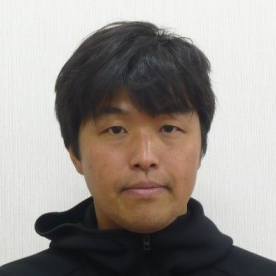Radioactivity of Hydrological and Coastal Systems: Research Advances after Major Nuclear Accidents
A special issue of Water (ISSN 2073-4441). This special issue belongs to the section "Hydrology".
Deadline for manuscript submissions: closed (1 September 2021) | Viewed by 650
Special Issue Editors
Interests: modeling of radionuclide transport in natural waters; hydrology; river hydraulics; coastal hydrodynamics
Special Issues, Collections and Topics in MDPI journals
Interests: field studies and modeling of coupled flow and chemical transport in unsaturated (vadose zone) and saturated (groundwater) soils; environmental impact assessment and remediation of contaminated soil and groundwater
Special Issues, Collections and Topics in MDPI journals
Interests: radioactive cesium in the waters in the proximity of Fukushima Daiichi Nuclear Power Plant; effects of radionuclides in coastal waters through rivers; interaction of radionuclides between solid and liquid phases in estuaries; study of transport and migration of radionuclides in the marine environment by natural analogues
Special Issues, Collections and Topics in MDPI journals
Interests: : radioactive contamination of marine and freshwater fish; radionuclide transfer of aquatic organisms through food webs; restoration of fisheries after the nuclear accident
Special Issue Information
Dear Colleagues,
The World is approaching the 35th anniversary of the Chernobyl Nuclear Power Plant (ChNPP) accident that occurred on 26 April 1986, and the 10th anniversary of the Fukushima-Daiichi NPP (FDNPP) accident that occurred on 11 March 2011, which were the two largest nuclear accidents in the human history. Both accidents caused widespread environmental contamination, including the pollution of air, soil, rivers, reservoirs, lakes, groundwater, aquatic biota, and coastal zones of the seas and oceans. The ChNPP accident heavily polluted the watersheds of the lowland rivers of Ukraine, Belarus, the Russian Federation, and part of Western Europe. The FDNPP accident heavily polluted mountainous watersheds. Although the consequences of both accidents have been intensely studied over the years, the approaching anniversaries give an occasion for summing up the results of recent studies on the fate and transport of radionuclides in water, sediments, and aquatic biota in the zones impacted by the ChNPP and FDNPP accidents, along with the results of studies of the radioactivity of natural waters throughout the world. This Special Issue of Water calls for papers presenting recent advances in experimental and modeling studies of radioactivity in natural waters aimed at the following topics:
- Transfer of radionuclides in the soil–water system and the effects of erosion on the washout of radionuclides from catchments.
- Fate and transport of radionuclides in rivers, hyporheic zones, oceans, lakes, reservoirs, and groundwater.
- Transfer of radionuclides in the coastal zone of seas, including studies of erosion, transportation, and deposition in the zones of interaction of sea and river waters.
- Aquatic radioecology—the radioactivity of freshwaters and marine biota.
- Development and application of mathematical models and numerical simulations for forecasting radionuclide fate and transport in hydro-ecological systems and decision making.
Papers dealing with the fate and transport of naturally occurring radionuclides will also be welcomed.
Prof. Dr. Mark ZheleznyakDr. Boris Faybishenko
Prof. Dr. Hyoe Takata
Prof. Dr. Toshihiro Wada
Guest Editors
Manuscript Submission Information
Manuscripts should be submitted online at www.mdpi.com by registering and logging in to this website. Once you are registered, click here to go to the submission form. Manuscripts can be submitted until the deadline. All submissions that pass pre-check are peer-reviewed. Accepted papers will be published continuously in the journal (as soon as accepted) and will be listed together on the special issue website. Research articles, review articles as well as short communications are invited. For planned papers, a title and short abstract (about 100 words) can be sent to the Editorial Office for announcement on this website.
Submitted manuscripts should not have been published previously, nor be under consideration for publication elsewhere (except conference proceedings papers). All manuscripts are thoroughly refereed through a single-blind peer-review process. A guide for authors and other relevant information for submission of manuscripts is available on the Instructions for Authors page. Water is an international peer-reviewed open access semimonthly journal published by MDPI.
Please visit the Instructions for Authors page before submitting a manuscript. The Article Processing Charge (APC) for publication in this open access journal is 2600 CHF (Swiss Francs). Submitted papers should be well formatted and use good English. Authors may use MDPI's English editing service prior to publication or during author revisions.
Keywords
- Radioactivity of natural waters
- Nuclear accidents
- Nuclear waste disposal
- Contamination of soil and surface waters
- Groundwater contamination
- Contamination of coastal areas
- Ocean dynamics of radioactivity
- Aquatic radioecology
- Modeling of water systems








